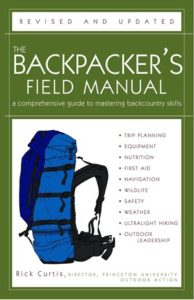My name is Preston B. Cline, I am the founder and President of Adventure Management (www.adventuremanagement.com). We provide Operational Risk Management Training and Consulting to educational programs throughout the world. I have been asked by Rick Curtis to begin a Risk Management Blog related to Adventure Education.
I want to begin by clarifying the areas that I will be discussing. In the context of Education, Risk Management can generally be broken down into three areas:
1. Institutional Risk Management
2. Operational Risk Management
3. Theoretical Risk Management
Institutional Risk Management: Is the area usually inhabited by the Attorney, Insurance Manager, Accountant, Security Officer, Executive Director, etc. All of the members of this group are trained to define risk as: “the potential for loss,” and to manage it by creating systems to reduce, transfer, eliminate or retain the risks they have identified. Their primary task is to prevent the organization from encountering unnecessary hazards. For example, an intruder on campus, a violation of the law, or a gap in insurance coverage has no benefit to the students or the community, so this group will take programmatic measures to reduce the likelihood of encountering those hazards. Sometimes, however, this group can overstep their expertise. For example, they may have the expertise to determine if the organization should offer Canoeing, even though some of them may never have actually seen a canoe. Following that approval some of these stakeholders may want to start dictating operational issues, such as equipment, training, technical levels, etc. These issues are primarily the role of the Operational Risk Managers (In some small organizations these roles may be the same.)
Operational Risk Management: Is the area inhabited by the Program Manager, Program Coordinator, Risk Manager, etc. The members of this group are defining risk as: “Human interaction with uncertainty”. Risk is seen as a tool that is leveraged to create an authentic educational experience. Operational risk managers, who are working in an educational context, do not tend to ask “is this activity or experience safe?”, but rather “does this activity or experience support our educational goals?” It is understood that unsafe activities are not supportive of the educational goals. This allows them to focus on creating parameters around trips that are oriented toward educational outcomes. As a result, they may tell a class of 12 year olds that canoeing is appropriate, but only on flat water, wearing certain PFD’s, with a certain canoe.
Theoretical Risk Management: This is basically the intersection between the above two areas. Because we are working in an educational setting and not, for example, in a financial setting, our systems are primarily human based rather then technology based. What this means from a risk management point of view is that risk is neither simply good or bad, but the synergistic interaction between good and bad. The more adversity a group or individual needs to overcome the more rewarding the success. The eternal question that adventure programs face is how much adversity, how much uncertainty do we add to the mix to pursue our learning objectives?
Changing the Debate
For so long, Adventure Education has been trying to defend itself by proclaiming how safe we all are. The truth is that we are not safe, and never will be. Safe is a metaphysical impossibility. In trying to win this debate the only thing that we are accomplishing is the subtle chipping away at the authentic nature of our collective experiences.
It is time that we recognize that as human beings we are always going to be interacting with uncertainty. As we as a society advance technologically the level of uncertainty that we interact with is increasing, but most people are still managing it the same way as our primitive forefathers, through anger or fear. If we are to address some of the looming challenges that we as a species are starting to face, we need to stop viewing risk and uncertainty as a threat, but instead as a constant.
One of the things that make Adventure Education so unique is that it uses risk and uncertainty as an educational tool. A tool that helps people develop sustainable skills for managing the risks in there own lives.
It is critical that we change the debate from “what will happen to my child on this trip?” to “what will happen to my child, in the coming years, if they do not take this trip?”
Let the debate begin
Preston B. Cline


